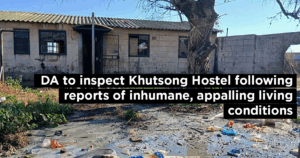Gauteng public hospitals only have 751 ICU nurses, fewer than half of the 1760 ICU nurses needed to serve our population.
Gauteng Health MEC Nomantu Nkomo-Ralehoko disclosed this distressing information in a written reply to my questions in the Gauteng Legislature.
According to the MEC, the effects of the ICU nurse shortage are as follows:
“Increased patient mortality, decreased quality of care, increased workload and burnout, delayed or cancelled procedures/surgeries, increased length of stay, negative patient experience of care, increased healthcare costs from overtime and temporary staffing, persistent shortages can discourage potential nurses from pursuing ICU careers and lead to experienced lCU nurses leaving the profession, and insufficient staffing can undermine patient safety initiatives, such as infection prevention and control and medication safety programs.”
There should ideally be 10-20 ICU beds per 100 000 people, so Gauteng should have between 1600 and 3200 ICU beds for 16 million people, which translates to 1760 to 3520 ICU nurses.
I am concerned that there are 250 ICU nurse vacancies, which means that one in four ICU nurse positions are unfilled despite the vast need. The MEC blames “budget constraints and few Speciality Nurses in ICU.”
The lack of ICU nurses is a major reason why many operations are cancelled as emergency cases take precedence. It also contributes to long waiting times for operations – more than 34 000 people are on the surgery waiting lists.
A DA-run health department would give priority to filling critical positions like ICU nurses and expand specialist training by cutting red tape and partnering with the private health sector.








